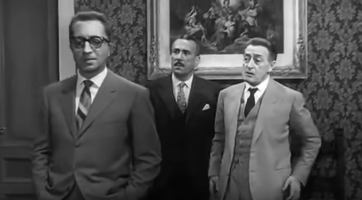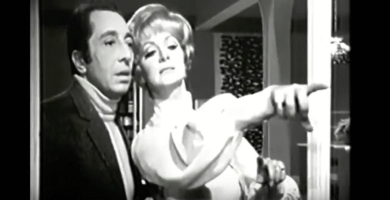
Aroldo Tieri with Peppino De Filippo and Totò
|

Aroldo Tieri and Giuliana Lojodice
|

Aroldo Tieri with Peppino De Filippo and Totò
|

Aroldo Tieri and Giuliana Lojodice
|
|
Planet of the Apes 1968 | 2018 In 1968, in cinemas arrives Planet of the Apes, whose narrative development is such as to rise above the science fiction genre to which it is ascribed. It is derived from the novel La Planète des singes, by the French writer Pierre Boulle, published in 1963. Review by Ninni Radicini Maria Callas: From the stage of the Opera, a modern legend In the recurrence of forty years after the death of Maria Callas (Maria Anna Sofia Cecilia Kalogeropoulos, New York City, 02 December 1923 - Paris, 16 September 1977), an exhibition in Greece, in Athens, at the B&M Theocharakis Foundation, celebrates her relevance as a personality in the history and culture of the Twentieth century. Article by Ninni Radicini From the loser's side. Eine Geschichte im Fluß der Erinnerungen (Novel by Nidia Robba) Wirtschaftswunder, the economic miracle that has characterized the contemporary history of Germany and in general of the German area (including Austria) starts from the early 50s, having its prodrome at the end of the previous decade when, immediately after the conclusion of the Second World War, the German people had to start reconstruction. «The road to infinity» (Preface by Ninni Radicini) 13 August 1978 - The first podium of Gilles Villeneuve in the F1 world championship Page by Ninni Radicini |